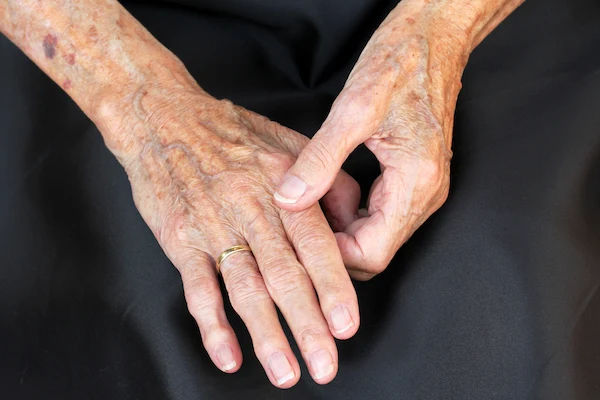- female
- 30 Years
- 29/01/2025
I'm currently taking Dolopar 500mg, which includes PCM and 25mg caffeine, three times a day as prescribed by my MBBS MD doctor. However, my fever only seems to subside for about 4-5 hours after taking it. Is it okay for me to take it four times a day instead to keep the fever at bay completely?
More General Physician/ Internal Medicine Health Queries
View allI'm curious about the long-term effects of working night shifts. I've been at it for over three years, and I've read that it can cause physical health issues over time. Is that true? If so, how serious can these problems get? Also, are there any specific precautions I can take to minimize these health risks?
Yes night shift duties would cause lack sleep and rest which leads to serious problems like high cholesterol,diabetes,hypertension,acidity etc.,manage your sleep schedule in a healthy way and take adequate rest
Answered by 1 Apollo Doctors
Hey, I've had a fever for the past four days and I've been taking Zanocin, Paracetamol, PanD, and AtoZ. Can you help me figure out how to get better? I'm really concerned about this.
Continue taking the prescribed medications (Zanocin, Paracetamol, Pan-D, AtoZ) as directed by your doctor, and consider the following additional measures to help manage your fever: drink plenty of fluids, rest adequately, use a cool compress or take a cool bath to reduce body temperature, and monitor your temperature regularly; if your fever persists or worsens, consult your doctor for further evaluation and guidance.
Answered by 1 Apollo Doctors
Fell off my bike and hurt my hand. I got a TT shot and some ointment from the doctor, but they didn't do any dressing on the wound. Should I have it dressed, or is it okay to leave it as is?
Generally, train travel is safe during the 1st trimester (9 weeks). However, take precautions: _Avoid crowded trains_ _Choose a comfortable seat_ _Keep hydrated and snack_ _Take regular breaks_
Answered by 1 Apollo Doctors
Disclaimer: Answers on Apollo 247 are not intended to replace your doctor advice. Always seek help of a professional doctor in case of an medical emergency or ailment.






